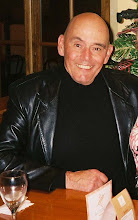Yesterday, lawyers for Gitmo detainee Omar Khadr won a major court victory in Canada when the Supreme Court ruled the Canadian government must release videos of its security service agents interrogating Khadr.
Khadr, who was 15 years old when he was captured in Afghanistan by American forces in 2001, was hustled off to Guantanamo where he has languished ever since. After several years in custody, the Canadian government was finally allowed to interview him – although Ottawa never made getting to see Khadr a priority. But rather than send counsellor officials, a doctor and lawyers once permission was granted, it sent a pair of secret service operatives who he agreed to see only because they promised they could help get him home.
The tape is appalling. It's on YouTube at www.youtube.com/watch?v=yNCyrFV2G_0
Once he realised he’d been tricked, Khadr, who was by then 16, broke down and could not stop crying. Left alone by the interrogators, who told him to pull himself together, he kept sobbing uncontrollably, rocking back and forth and muttering to himself. The audio makes it hard to decipher what he's saying. To me and many others who watched the video it sounds like "help me." Others heard, "kill me." An Arabic-speaking friend of mine wondered if he was saying, "Oh, my mother" – "Ya ummi" – not very likely since English is his first language.
Whatever he was trying to say, the scene is hard to view, exactly what his lawyers wanted. Nathan Whitling and Dennis Edney hoped the video would outrage a previously indifferent public and federal government. They had spent years launching legal challenges, finally winning a Supreme Court case in May that forced the Conservative government to hand over the recording.
After the tape’s release, Prime Minister Stephen Harper reiterated the same government lines he's used for years: Canada will not interfere in the U.S. justice system, implicitly suggesting that the federal government respects Guantanamo's controversial military commissions but not answering questions about its legality directly.
Nor would he address questions from reporters about Khadr's treatment or Canada's involvement in his interrogations.
Others called for Khadr's outright release – something Khadr's lawyers themselves have not suggested, offering instead a gradual re-integration into society that involves psychological and religious rehabilitation.
Yesterday's revelations are by far the most visceral that have been released and were carried around the world because it's the first time any Guantanamo detainee has been seen undergoing interrogation. But yesterday wasn't the first time that Khadr's allegations of abuse have been heard. At a press conference in Toronto three years ago, Edney told reporters that Khadr's American captors had shackled his hands and legs together and used the teenager as a "human mop" to soak up a pool of his own urine.
So much for myth of Canada the good, the caring, the world’s refuge.
International civil rights groups have decried Khadr's detention and trial due to his age. He was 15 when he was detained in Afghanistan but has not been considered a child soldier, as required by the Geneva Conventions and how he would have been if he was captured in foreign conflicts such as those in Africa or South Asia.
A Guantanamo kangaroo court rejected an argument that Khadr's charges should be dismissed because international law protects children under the age of 18. But the issue still resonates in legal and human rights circles. A UN committee denounced the trial of a minor; Canadian Senator Roméo Dallaire and former child soldier Ishmael Beah are among those who have warned that the U.S. will set a dangerous precedent by trying someone who was a child at the time of his alleged war crimes.
Shame on Prime Minister Harper and the Canadian government for being a willing, on-going party to the psychological torture and illegal detention of a child who is a Canadian citizen.
He must be brought back to Canada and, if sufficient genuine evidence (as opposed to evidence gained through physical or psychological torture) exists, charged in a court of law. His lawyers must have access to all evidence obtained by the Americans after his capture – including anything considered "sensitive." Khdar must have the right to confront his accusers in an open court, before a jury that will decide his guilt or innocence. Most of all, he needs psychological help.
Today, all Canadians are Omar Khadr. Americans are, too. If the Harper government can conspire with the war crimes of George Bush in the case of Mr. Khdar, then it is conspiring against all of us and in our name.
When I watched the video, I wept for him and for all of us.
Tom Degan
1958-2023
To all Tom’s faithful readers of the Rant, we are sad to announce that he
passed away on December 7th, 2023. Thank you so much for th...

